Affiliate links on Android Authority may earn us a commission. Learn more.
Google is following Apple's lead, but is that the right move?
October 23, 2019
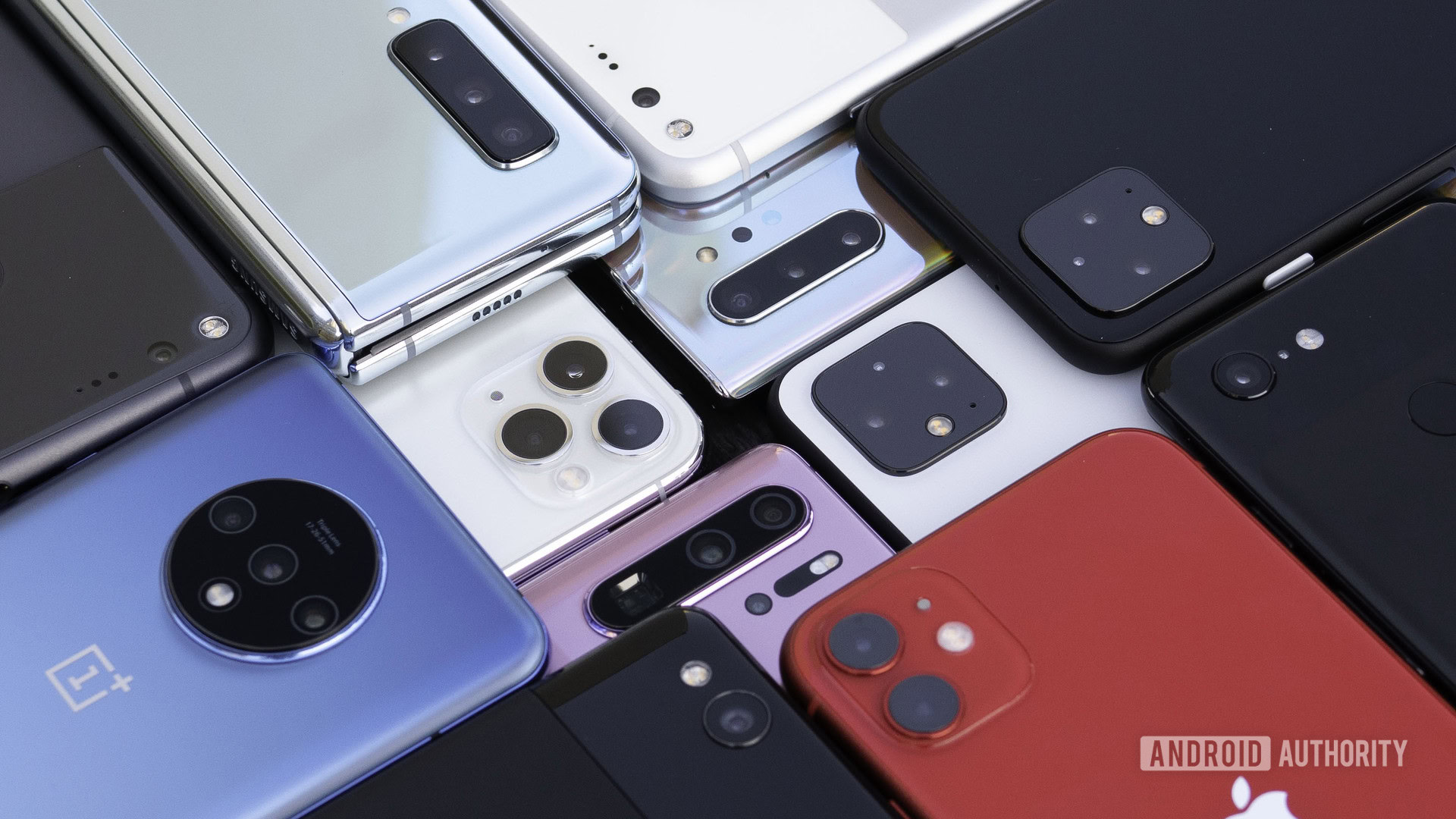
Ever since the launch of the first Pixel phone, Google’s strategy was clear: Make as many iPhone users as possible switch to Pixel. This was apparent from one of the very first Pixel commercials in Google’s marketing campaign. This is still very much the case today — Google is still primarily targeting iOS users as opposed to making people already in the Android camp switch to Pixel.
But with the recent deluge of lackluster Pixel 4 reviews, it’s worth talking about whether or not Google needs to shift its strategy for the Pixel line. Should Google continue to focus on making iPhone users switch, or should Google be more worried about other Android phones?
The evidence
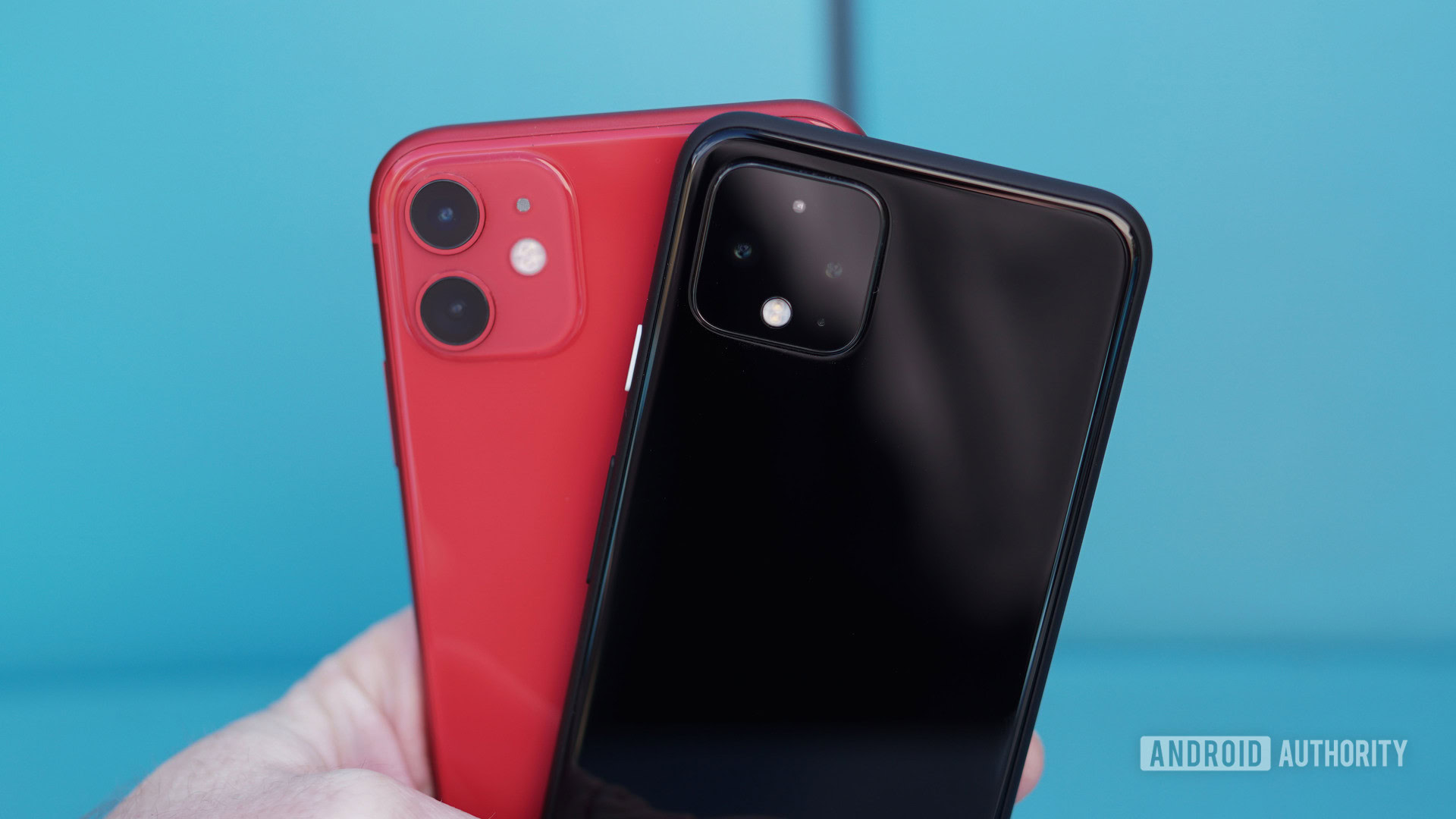
The Google Pixel line has never been about the specs sheet. Hell, the Nexus line wasn’t either. Google’s phones have always had just enough to get by — sometimes more, sometimes less. That’s important to remember when searching for your next Android phone. You buy from Google for the experience, not because it’s the best of the best on paper.
If you don’t have the Pixel 4 specs sheet memorized yet, check out how the device compares to the high-end Android phone competition right here. There’s no contest — devices like the Samsung Galaxy Note 10 Plus, HUAWEI Mate 30 Pro, and even the less expensive OnePlus 7T trounce the Pixel 4.
Let’s analyze this a bit. The Pixel 4’s arguably tiny battery capacity, just-enough 6GB of RAM, and almost-too-little 64GB of baseline storage are the lowest specs we can expect to see in a 2019 flagship Android phone. Many people will care about these numbers — and probably not buy the Pixel 4 because of them — but I’d argue the majority of the people Google is targeting don’t care about these numbers as much as you’d think. They care about the experience, and the Pixel 4 delivers a good one (for the most part).
Google is positioning the Pixel 4 as the iPhone of the Android world, whether it says so or not. Clean, hassle-free software experience? Check. Fantastic cameras? Check. No bloatware? Check. People who are looking for a good iPhone alternative want something comparable to the iPhones they already know. Gesture navigation that’s basically the same as what Apple offers? Check. Quick and (mostly) secure face unlock? Also check.
'All-day battery' sounds better than '3,700mAh battery' to the general public.
Providing a good experience overall is what matters to many buyers, not so much the numbers on paper. It’s exactly the reason why you won’t hear Apple mention a specific RAM amount or battery capacity on stage. It’s always “This is the fastest iPhone we’ve ever made,” or “The iPhone will give you all-day battery life.” Throwing out capacities — big or small — immediately compares the iPhone to the Android competition. Did you know the iPhone 11 Pro only has 4GB of RAM? If Apple said this on stage, despite the iPhone 11 Pro being one of the quickest phones we’ve ever used, the internet would be ablaze with negative takes on how the iPhone has half the RAM as the latest Samsung phone.
What Apple does, but with Android
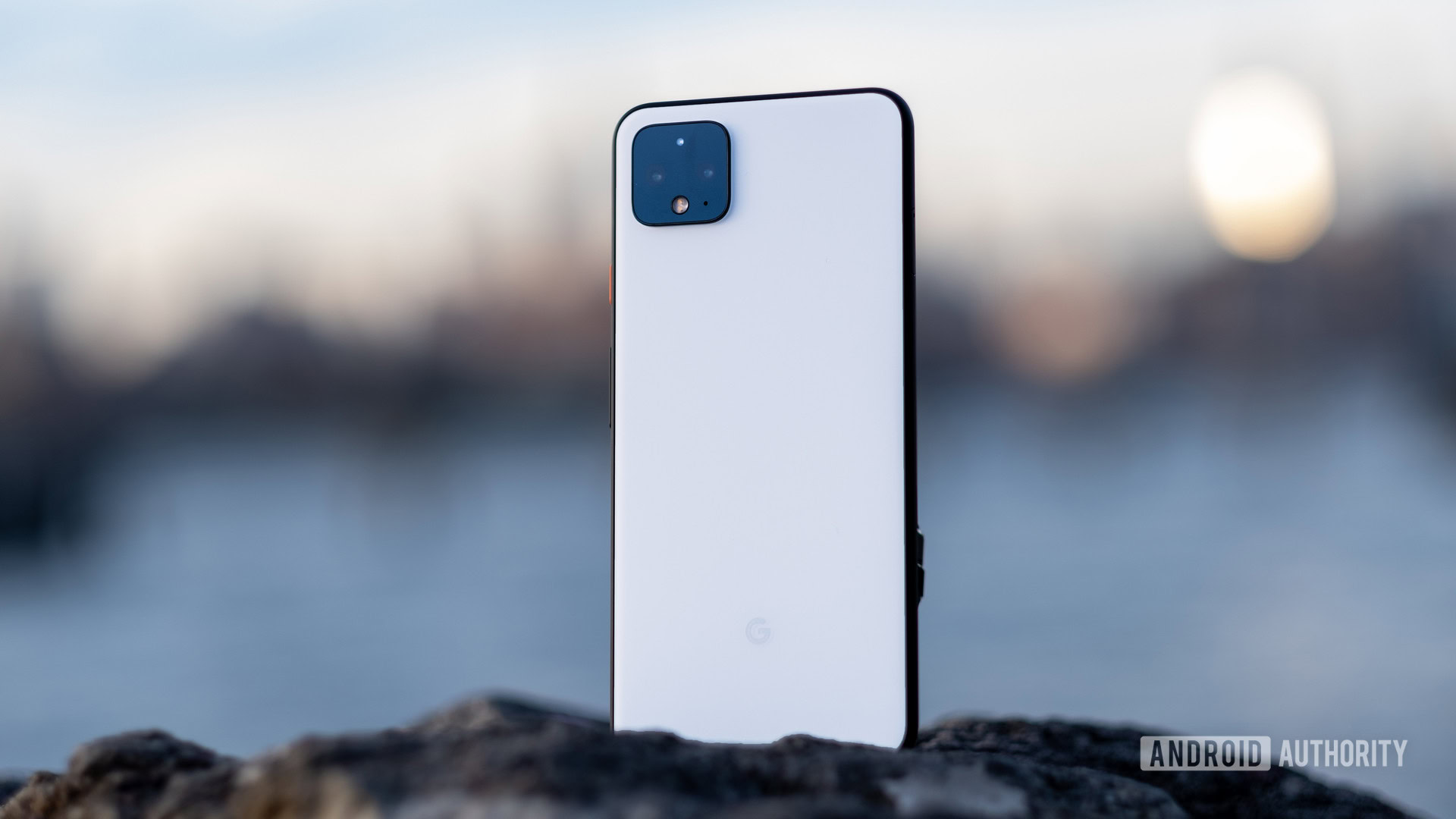
It’s not a crazy strategy. Apple rules the US market in terms of smartphone sales, so shouldn’t Google do what it can to emulate Apple’s smartphone strategy? After all, Apple is a product-first company, and Google is still in the early days of taking smartphone hardware seriously. It wants to sell Pixel phones, so why not learn from the best?
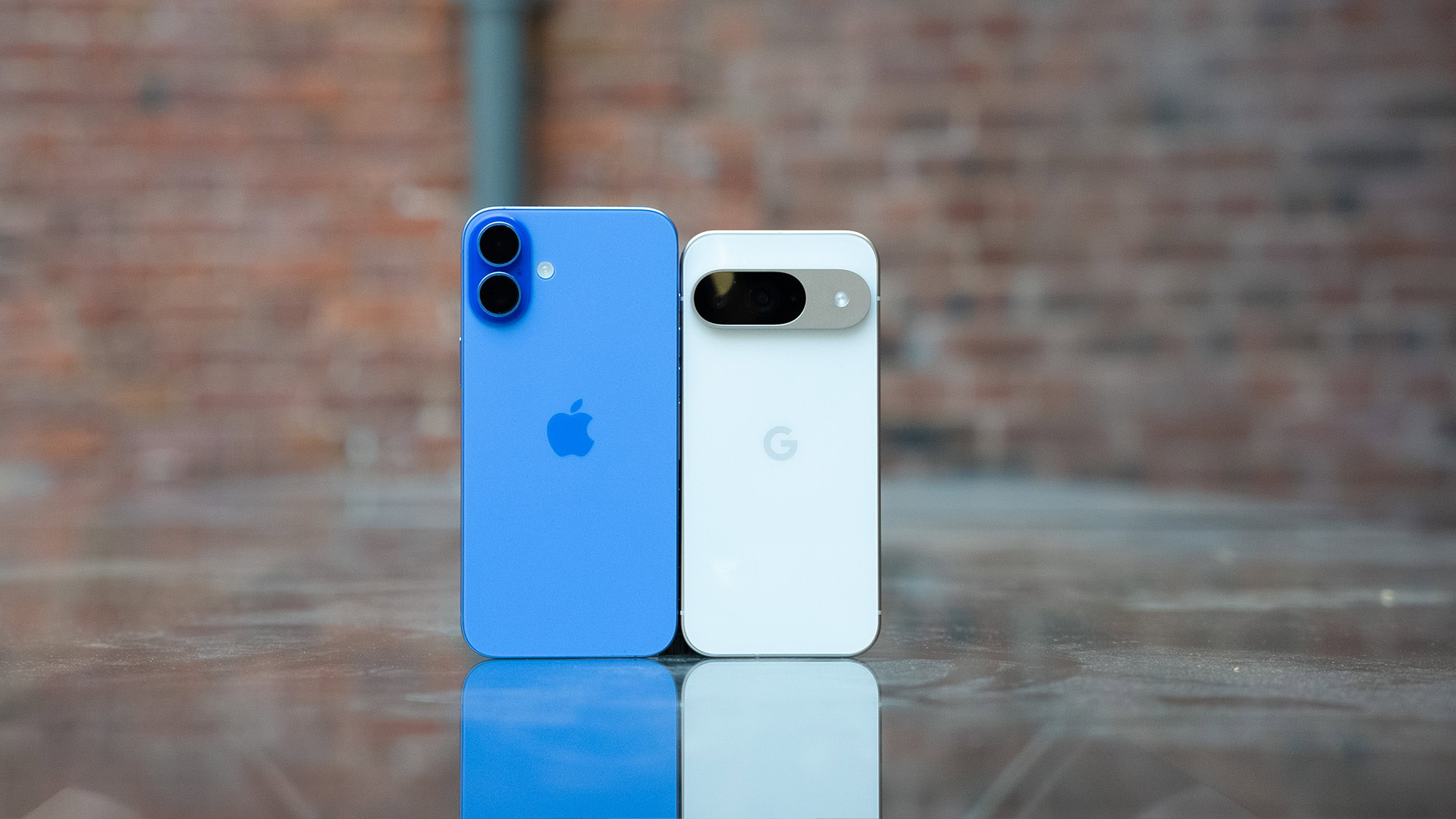
But is this the right move? Many people who are solely on Team Android are all about the specs. Launching an Android phone that is decidedly not all about the specs but still tries to compete with the best of the best will obviously cause a stir in the Android community. Google is fighting an uphill battle trying to convince both Android and iOS users that Pixels are worth people’s hard-earned money compared to the competition. iOS users are used to a certain level of simplicity and exclusivity in their smartphone experience, while Android users are spoiled by the sheer monster specs in devices like the OnePlus 7T Pro and Samsung Galaxy S10 Plus.
Is a new strategy necessary?
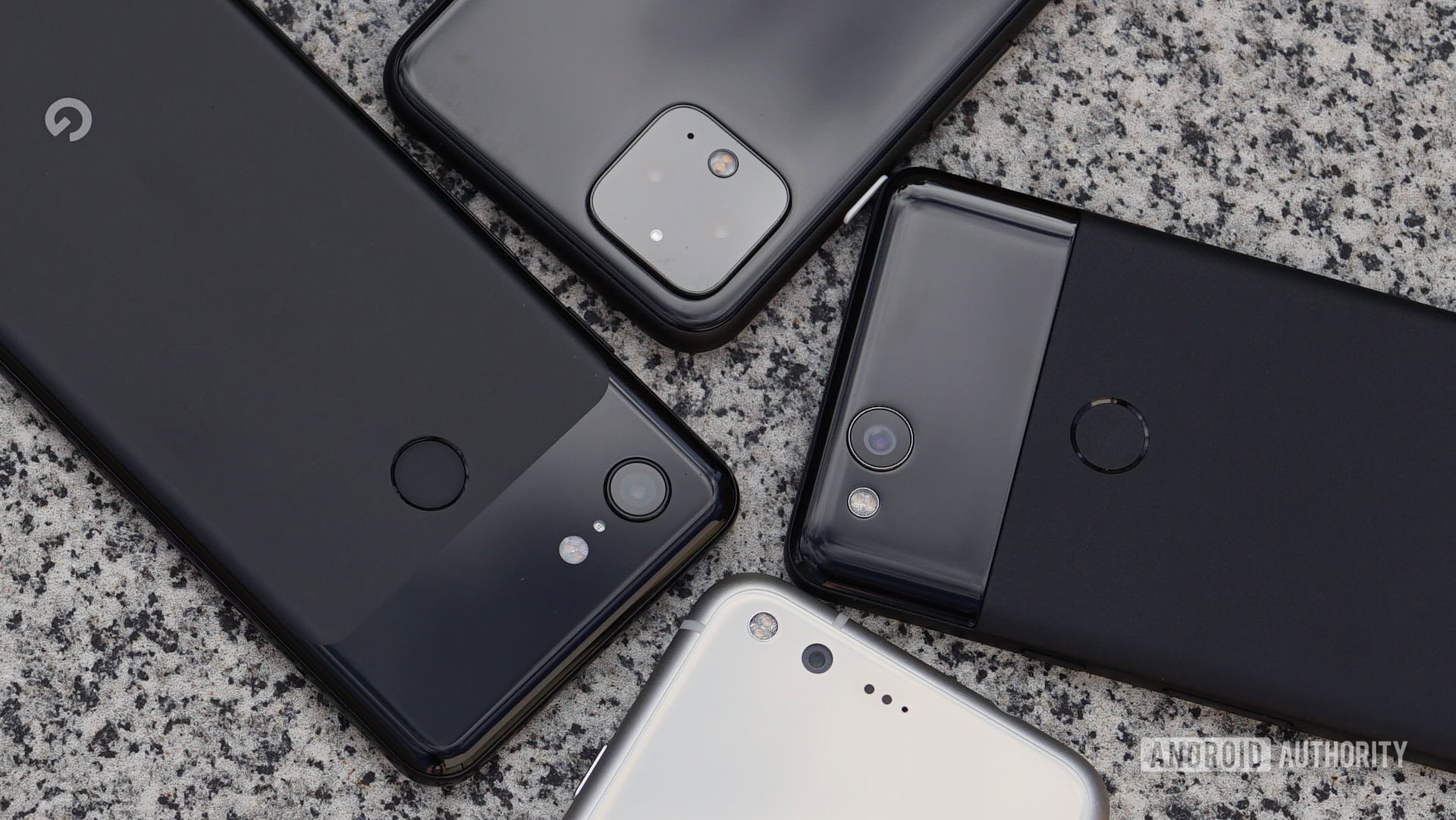
The Pixel line doesn’t necessarily need to be “fixed.” There’s a lot to like about these smartphones, and many of us here at Android Authority use them every day. But we know the Pixel 3 didn’t sell well, and Google’s hardware profits from 2019 were only bolstered after the launch of the Pixel 3a. A shift in strategy might do Google some good, especially because, in many ways, the Pixel 4 isn’t a huge leap over the Pixel 3.
Perhaps Google could shift things around and give people a reason to buy a flagship Pixel again, aside from the good cameras and clean software experience. It’s all about the competition on both sides of the pond, not just one or the other.
It might be time for Google to choose: Compete with higher-end phones or cut the prices.
As it stands, Google is asking a lot from users to buy Pixel over devices like the OnePlus 7T or iPhone 11 that undercut the Pixel 4’s price. Herein lies the first potential strategy shift: Make the next Pixels more affordable and sacrifice a few features to hit the right price point. Or don’t sacrifice many features and still try to hit a lower price. It used to do this with the Nexus line, after all. This way, the Pixel 5 could compete directly with OnePlus flagships and the cheaper iPhones on pricing. It’s not a bad idea, and we already know people like affordable Pixel phones.
Or would it be more beneficial to go all-in and make a true Galaxy Note 10 Plus/iPhone 11 Pro competitor? I’m talking highest-end everything and throw pricing concerns out the window. Have it start at ~$1,000 and throw in a bigger battery and extra wide-angle lens to the rear camera. That’ll certainly help silence a few Pixel 4 critics.
Google is trying to have it both ways without fully committing to one or the other. If it takes a pared-down approach to better appeal to iPhone users, it’ll be compared negatively to the Android competition. If it takes an everything-but-the-kitchen-sink approach like other high-end Android phones, it’ll lose that simplicity iPhone users are drawn to.
I’m starting to think there’s no middle ground. Either focus on one area and alienate the other, or vise versa. We’ll have to wait and see what Google reports in its next earnings call, but I don’t have much confidence the Pixel 4 will turn things around for Google’s smartphone division. The Pixel 4a could help Google make some decent profits, maybe, but not the Pixel 4 or 4 XL.
Is there room for an iPhone of the Android world? Google thinks so, and the Pixel 4 is the closest thing to it. I just don’t know how much longer it will last.
Is Google's iPhone-emulating strategy the right way to go?
Thank you for being part of our community. Read our Comment Policy before posting.